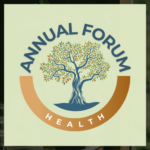By Richard Kohl (richardkohl@strategyandscale.com ) and Tom Feeny (tfeeny@r4d.org).
Results for Development (R4D) is implementing a project funded by Grand Challenges Canada (GCC) (1) to better understand and catalyze demand for, and scale-up of, health innovations by public sector actors in developing countries, and (2) to identify what GCC (and other donors) can do to encourage public sector scaling. The project began in June 2020 and has recently completed a first draft of a landscape analysis. It is currently being revised and will be publicly available shortly. The next stage will translate the solutions proposed in the landscape analysis into concrete activities that can be field tested on-the-ground with county governments in Kenya (and potentially elsewhere, resources permitting) in collaboration with a Kenyan partner, Insight Health Advisors, and with county public health officials, policymakers, and other stakeholders. Implementation of those solutions is expected to start in Spring 2021.
Some of the key findings from the draft report are:
- Many innovations funded by GCC and others are broadly aligned with public sector policy goals, but policy goals are not granular enough to be easily matched with appropriate innovations;
- In many countries, public health officials have little capacity or incentive to look for or scale innovations outside the immediate, high-priority They lack departments that systematically engage in scanning, assessing, adopting and scaling innovations, nor do they have staff with relevant training or expertise in those areas.
- Political leaders’ incentives encourage scaling innovations that address urgent issues, offer quick returns, low risk, and high visibility/relevance to This favors tangible investments like infrastructure.
- The common goal of Universal Health Care (SDG 8) expands the opportunities for scaling health innovations aligned with that objective, including the availability of domestic funding for
- The affordability of innovations and their costs compared to current technology or practices are at least as important as their impact. Public health officials particularly favor innovations that contribute to addressing existing technical, administrative or financial
The report proposes a solution of having a Scaling Guide take county teams in Kenya on a scaling journey from articulating their innovation needs, to scanning and assessing innovations, to adopting and actually scaling them. GCC/R4D/IHA are actively looking for Champions and Supporters to support the piloting of this model in Kenya and/or other countries. Support could include: financing the work directly; contributing to a pot of matching scaling funds to incentivize counties; providing relevant technical expertise or support for advocacy; partnering with related initiatives; or helping to disseminate the learnings from this project to others who would be interested in this work. Those interested in learning more about the project, the landscape analysis, and partnership opportunities should contact either Richard Kohl at richardkohl@strategyandscale.com or Tom Feeny at tfeeny@r4d.org.



